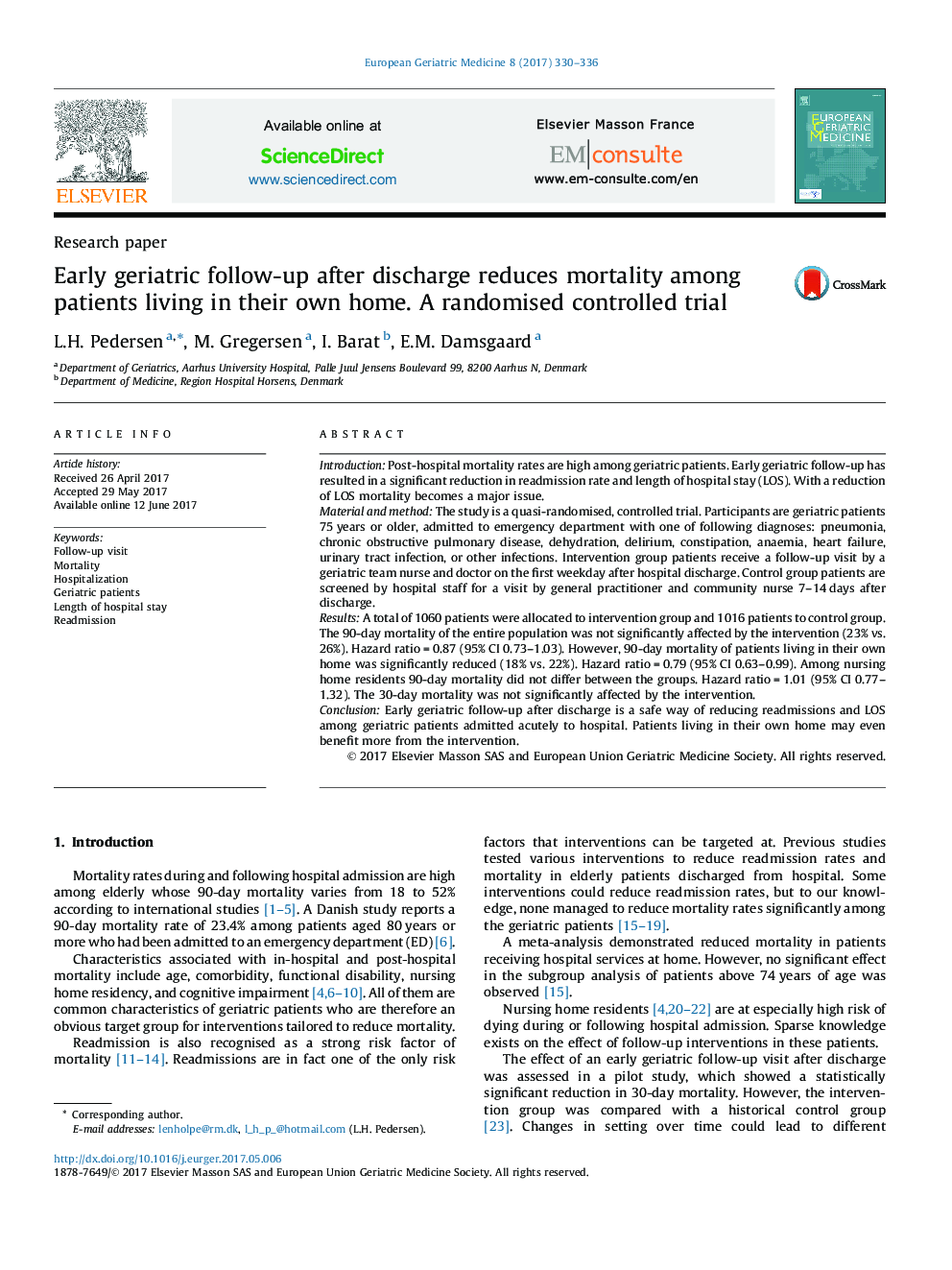| Article ID | Journal | Published Year | Pages | File Type |
|---|---|---|---|---|
| 5662631 | European Geriatric Medicine | 2017 | 7 Pages |
IntroductionPost-hospital mortality rates are high among geriatric patients. Early geriatric follow-up has resulted in a significant reduction in readmission rate and length of hospital stay (LOS). With a reduction of LOS mortality becomes a major issue.Material and methodThe study is a quasi-randomised, controlled trial. Participants are geriatric patients 75 years or older, admitted to emergency department with one of following diagnoses: pneumonia, chronic obstructive pulmonary disease, dehydration, delirium, constipation, anaemia, heart failure, urinary tract infection, or other infections. Intervention group patients receive a follow-up visit by a geriatric team nurse and doctor on the first weekday after hospital discharge. Control group patients are screened by hospital staff for a visit by general practitioner and community nurse 7-14 days after discharge.ResultsA total of 1060 patients were allocated to intervention group and 1016 patients to control group. The 90-day mortality of the entire population was not significantly affected by the intervention (23% vs. 26%). Hazard ratio = 0.87 (95% CI 0.73-1.03). However, 90-day mortality of patients living in their own home was significantly reduced (18% vs. 22%). Hazard ratio = 0.79 (95% CI 0.63-0.99). Among nursing home residents 90-day mortality did not differ between the groups. Hazard ratio = 1.01 (95% CI 0.77-1.32). The 30-day mortality was not significantly affected by the intervention.ConclusionEarly geriatric follow-up after discharge is a safe way of reducing readmissions and LOS among geriatric patients admitted acutely to hospital. Patients living in their own home may even benefit more from the intervention.
